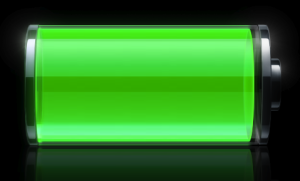We do many things throughout our lives. We go to the grocery store, exercise, browse through social media, and do our work, just to name a few activities we participate in. However, we live such busy lives that we forget to do the important things—the activities that bring forth the biggest impact in desired parts of our lives.
An important thing for a parent is to be with the children. An important thing for the product creators, bloggers, and anyone else in business is to get better results. This is where most people start writing a few things that they want to get better at and then get started. You write down all of the areas that you want better results in (sales, subscribers, etc). The only problem is that this actual practice is difficult. Few people write down their objectives to begin with, but even fewer people get the process right.
Many people who strive for better results simply write down all of the things they want better results in without giving it much thought. Many of these people write down lists with dozens of different areas to improve in. First off, a large list like that is unlikely to get accomplished. You need to simplify the list so each objective gets more attention. Secondly, how do all of these results align with your critical objective?
Maybe I threw some people off with the critical objective. For a very long time, I wrote down goals to get better results but never thought of the critical objective. The critical objective is a definitive goal you strive to accomplish, and all of the other important goals you plan support the critical objective.
Let’s say your critical objective is to make $250,000 every year. Now you have to focus on goals that bring in revenue, but not just any revenue. These goals, when accomplished, need to bring in revenue that adds up to at least $250,000 every year. Surveys are not going to cut it. Consultation sessions are good but not good enough. Reaching that income eventually comes down to product creation and growing your authority on the web.
Knowing the critical objective will allow you to eliminate all of the other goals that don’t matter. Anything that does not help you achieve your critical objective (other than family and important family events) is a distraction. If something does not bring in more money, then it is distracting you from your goal of making $250,000 every year. Sometimes the most powerful statements are the ones that make the most sense.
However, knowing your critical objective is not enough to find more time to be productive and do work that matters. Another piece of the puzzle is how early you wake up. They say that the average person needs about eight hours of sleep, and that is one of the most common misconception’s of today’s world. The actual length is anywhere from 6.5 to 7.5 hours (I am typically closer to the 7.5 hour range).
Think about how much extra time you get by waking up earlier. If you are someone who sleeps for 10 hours every day, and you suddenly decide to only get seven hours of sleep every night (which is okay), you are giving yourself three extra hours in your day. I find it shameful that one-third of our lives is spent sleeping. We could do so much more in that time. Of course, we need the sleep, but most people sleep for too long. Sleeping too much causes the same level of depression as not getting enough sleep, so waking up earlier also result in a happier life (people who wake up earlier in the morning are typically happier than those who don’t. Many articles talk about this topic. Here’s an example).
[tweetthis twitter_handles=”@MarcGuberti” url=”http://bit.ly/1637SHO”]Do you want to live a happier life? Just wake up earlier.[/tweetthis]
If you want to wake up earlier, here are the steps you should take:
Step #1: Get to bed before midnight
Step #2: Set an alarm clock by your bed to go off 6.5 to 7.5 hours from now
Step #3: Move the alarm clock out of reach before going to bed
Step #4: When you hear the alarm clock, get out of bed and turn it off
Step #5: You are out of bed. Why go back in?
This is the five step process I use to wake up 6.5 to 7.5 hours after I go to bed. Sometimes, I even set the alarm clock to go off in seven hours and 45 minutes because I know that being on my computer a few hours before going to bed makes it more difficult for me to fall asleep (this is a scientifically proven fact for people like you and me). I never go over eight hours of sleep at one time.
If you find this part of the process difficult to follow, I still urge you to follow it, but you can also take a nap in between. When I am extremely tired, I take a 20-30 minute nap and follow the same procedure I would follow from Steps 2-5 of waking up earlier. When I wake up, I experience a level of productivity close to the one I had when I started the day.
In Conclusion
Becoming successful only requires two things: knowing what you want to do (your critical objective) and finding the time to make it happen. By identifying your critical objective, you will also know which goals support your critical objective and which ones are the distractions.
Before you put in any more work for your business, ask yourself what the critical objective is. What are you trying to accomplish? What is your #1 goal for the year? What is the mission of your business? Once you choose your critical objective, only do the things that support that critical objective. Understandably, there will be other things that come up (other than family, family events, or important events in general). Those things that come up should get the back burner of your time.
What are your thoughts on this approach to becoming successful? Do you have any other suggestions for finding more time to do what is important? Please share your thoughts and advice below.

 Your productivity is one of the factors that determines how much you accomplish in your lifetime. The most productive people are the ones who get the celebrity status, the full-time income, and exert the most influence on our culture. The most successful people throughout history have shown the ability to be productive, and many of these people have shown a desire to be more productive than they already were. Productivity is a core element of success, and these 12 tips will help you increase your productivity so that core element of success can be strengthened in your own life.
Your productivity is one of the factors that determines how much you accomplish in your lifetime. The most productive people are the ones who get the celebrity status, the full-time income, and exert the most influence on our culture. The most successful people throughout history have shown the ability to be productive, and many of these people have shown a desire to be more productive than they already were. Productivity is a core element of success, and these 12 tips will help you increase your productivity so that core element of success can be strengthened in your own life.


